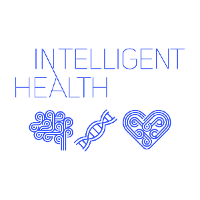Ahead of Intelligent Health (13-14 September 2023, Basel, Switzerland), we asked Wim Kees Janssen, Co-Founder & CEO at Syntho, his thoughts on the future of AI in healthcare.
I believe that Generative AI is positioned to make a significant impact in healthcare, particularly in the field of structured data (data that is formatted in tables, with rows and columns). This innovative technique enables the creation of synthetic data that closely resembles real-world data. It serves as a powerful solution to address data privacy challenges, a matter with significant urgency when dealing with healthcare data, known for its exceptional sensitivity. Here, healthcare organizations could use synthetic data as alternative for privacy sensitive real data. Accordingly, AI Generated Synthetic Data allows healthcare organization to unlock privacy sensitive data to allow them to build data-driven solutions like AI.

Healthcare severely needs data drive insights. Because healthcare is understaffed, over pressured with the potential to save lives. However, healthcare data is the most privacy sensitive data and is therefore locked. This privacy sensitive data:
Is time-consuming to access
Requires extensive paperwork
And cannot simply be used
This is problematic, as AI solutions cannot be realized without timely access to this data. That is why Syntho is committed to enable businesses worldwide to generate and utilize high-quality Synthetic Data at scale. By making privacy-sensitive data more accessible and more rapidly available, Syntho enables organizations to accelerate the adoption of data-driven innovation.
What do you think will be the biggest impact of AI and tech in the healthcare sector in the next 5 years?
Artificial Intelligence is positioned to revolutionize the healthcare sector in the coming years. However, as we advance toward this future, many organizations forget all the essential components required to realize and build these AI solutions. The process isn't as straightforward as simply assembling a backlog of potential smart AI solutions. It necessitates a thoughtful strategy for implementation.
One of the most critical components in this journey is data. Without relevant and accessible data, AI algorithms cannot be realized. For healthcare organizations, this is even more vital, as healthcare data is the most privacy sensitive data with even tougher challenger around accessing this data. Hence, organizations must prioritize the development of a smart data infrastructure that facilitates the seamless sharing and utilization of data in a timely manner, by utilizing solutions such as AI-generated synthetic data. Leading organizations already realize this and are able to turn making data accessible in a timely manner into a competitive advantage.
What's your biggest fear around the application of AI/tech in the healthcare field?
Trust in new emerging technologies is vital, and I believe that organizations play a pivotal role in establishing this trust by demonstrating responsible data handling and ethical use of AI solutions. My concern lies in the possibility that some organizations may not prioritize privacy-conscious utilization of data as they should. This could negatively impact the adoption and utilization of AI solutions. Hence it is Syntho’s mission to offer solutions to build trust and to handle data in a privacy preservative way. By doing so, we aim to foster an open data economy where information can be freely shared and utilized, without compromises on privacy.
What two people do you admire most in the world of healthcare?
I hold great admiration for frontline healthcare workers who provide direct patient care and frontline healthcare organizations, who facilitate this. Given the immense pressures they face, stemming from staff shortages and resource limitations, it's imperative that we empower them with intelligent solutions to enhance their work. I firmly believe that AI stands as a key enabler for frontline care.
Global AI events calendar
Montréal, Canada
Share your content with the Intelligent Health community
Got some interesting content you want to share with our community of AI and health Brains? You can send us anything from a published piece you have written online, white paper, article or interview. Submit it here


